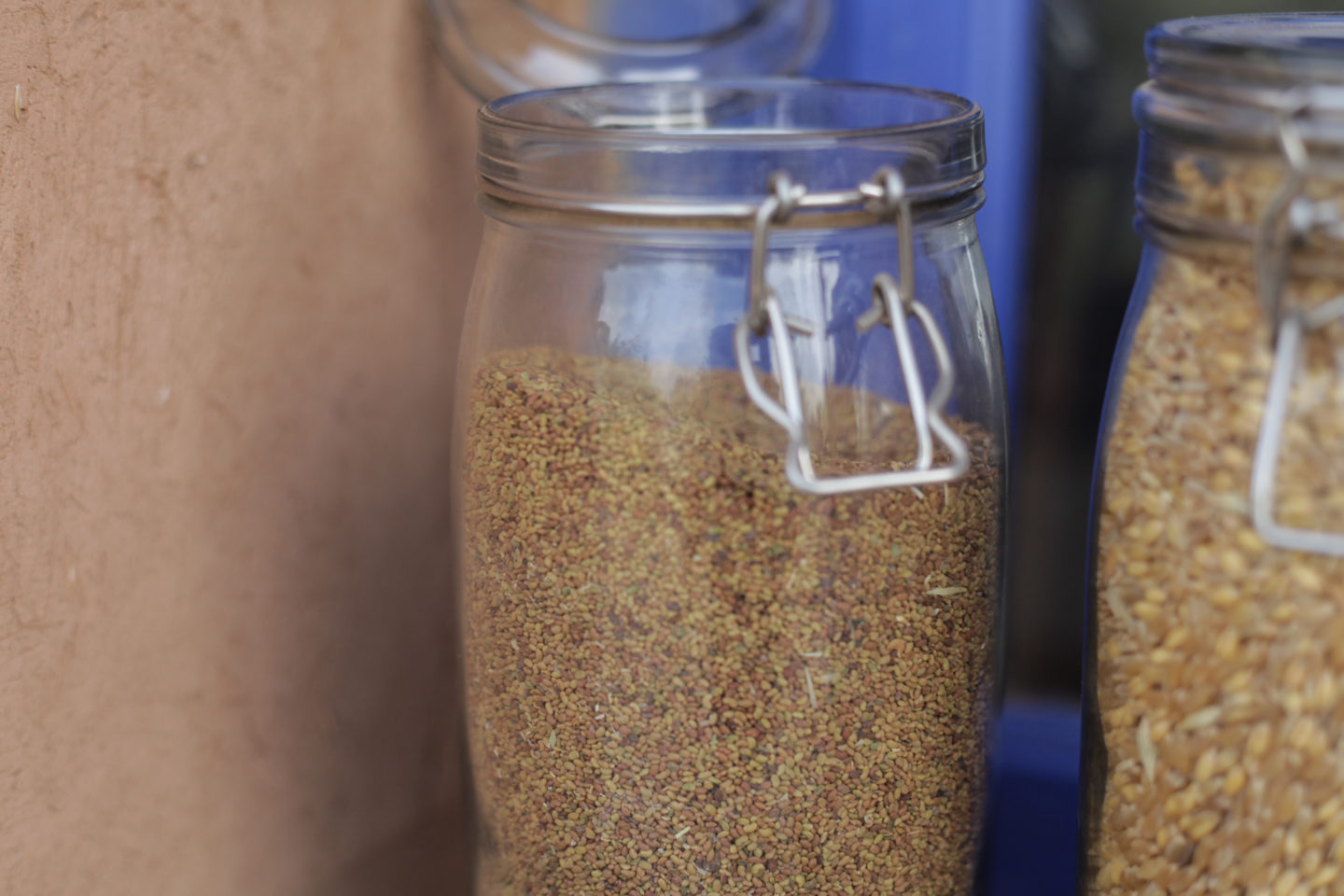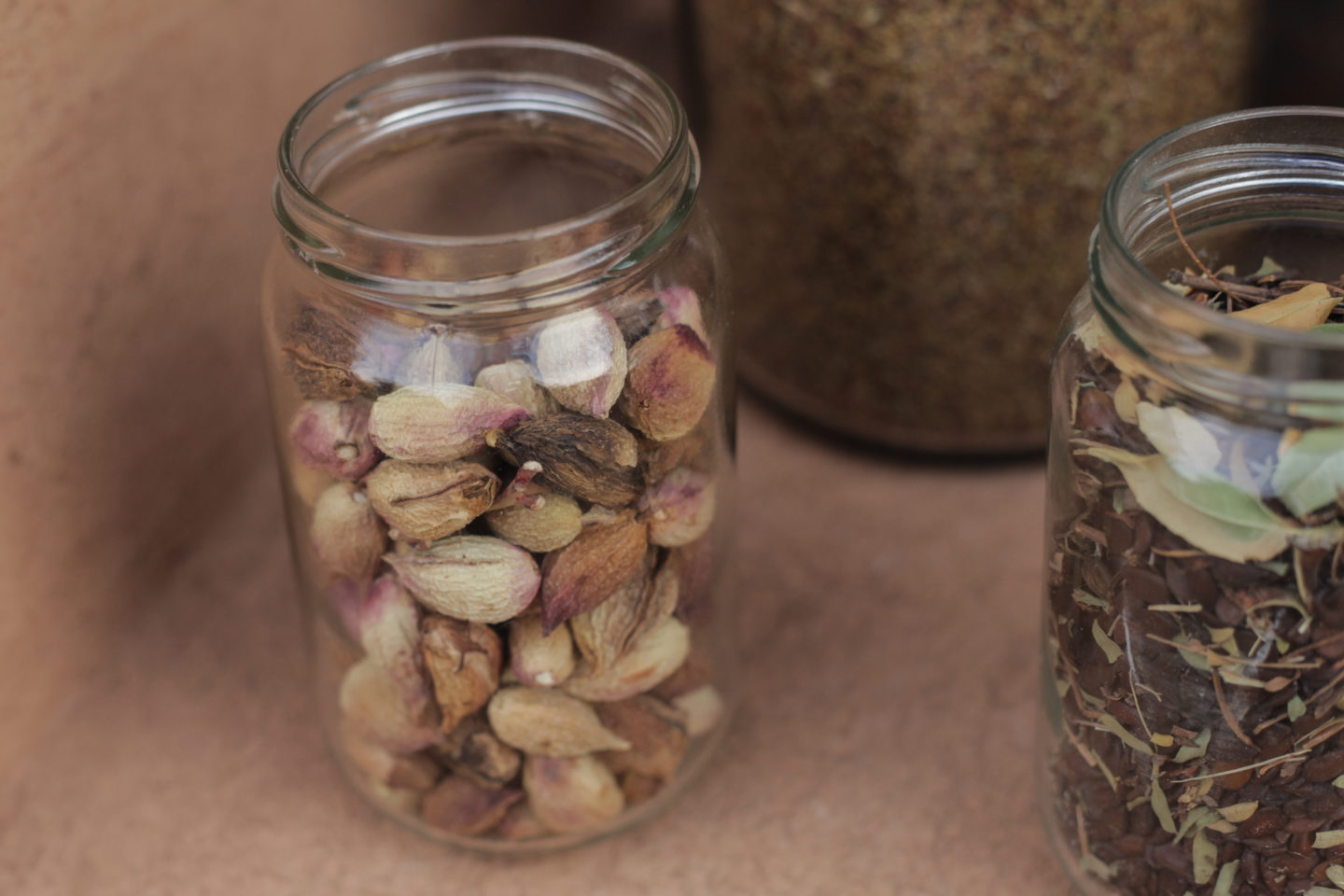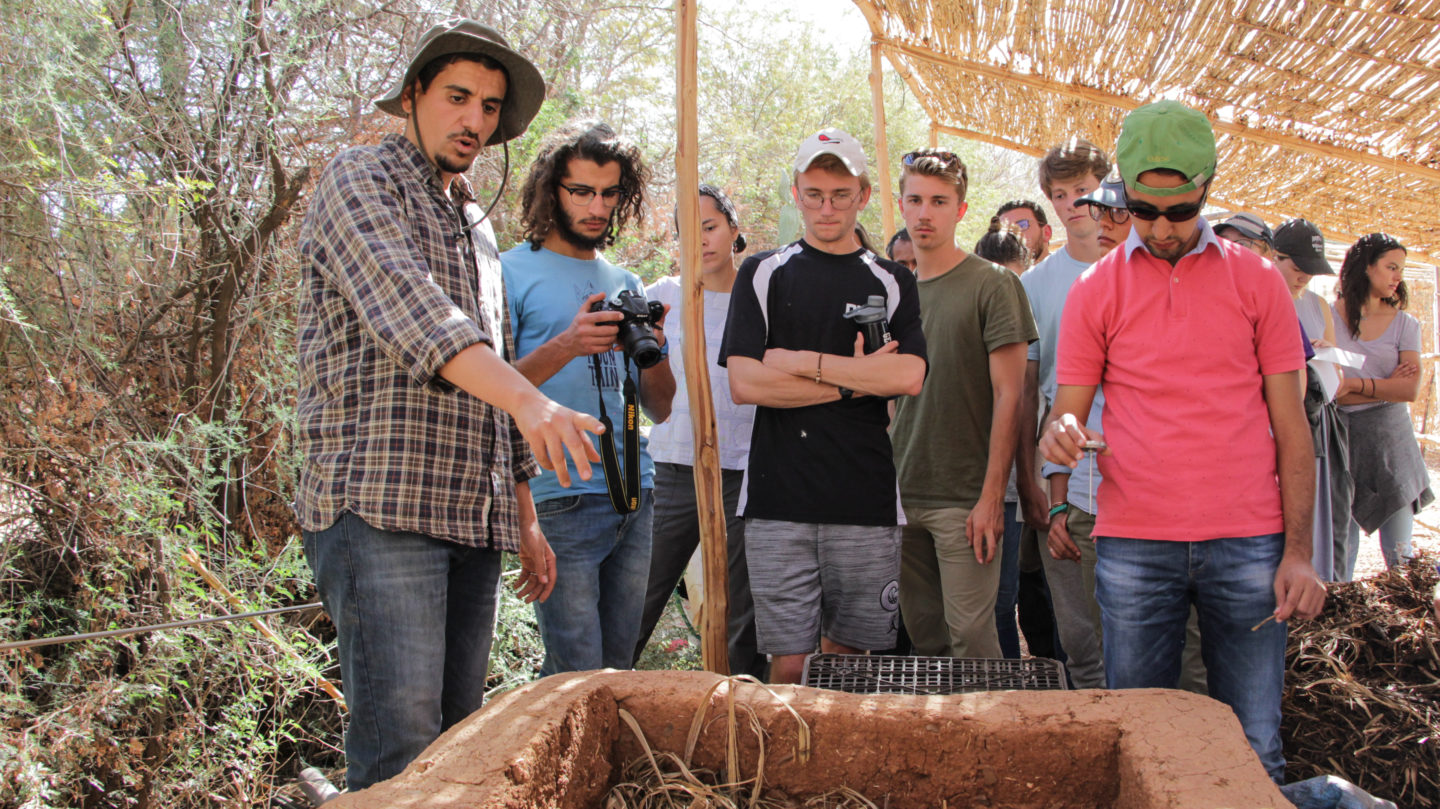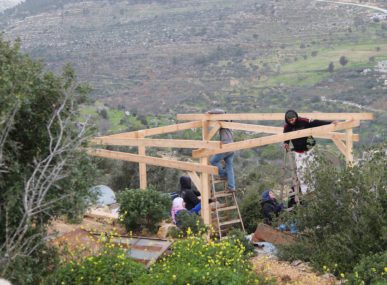Sustainable education for those at home and abroad:
Marrakesh Organics funds its farm of the future through diverse revenue streams. The main source is sustainability training: 10 to 15 day environmental courses on natural building, permaculture design, and sustainability farming. On this day in November, 30 American students studying the effects of climate change are being toured around the farm by Hajji.
With the exception of today, most of Marrakesh Organics’ courses are split — a mix of international visitors and Moroccans attending the workshops in either French or English. In the future, Marrakesh Organics plans to develop courses in Arabic specifically for farmers, and is working with the National Office for Vocational Training to get certified as an institute.
“If we combine technology with training, I believe we can produce more crops,” Hajji explains. “Agricultural exhibitions never include small farmers like the ones in the Ourika Valley, even though they make up such a big part of Morocco.”
It is as a result of this that Marrakesh Organics is not just a place for agricultural experimentation — it is also a demonstration space, where Hajji and his team invite neighbours to see the result of farming innovation with their own eyes. It is a way to communicate the message to people without a scientific background. “We want to prove that ecology is the best economics,” Hajji concludes.
According to Dr. Naeem Sheikh, that argument may save Morocco’s agricultural industry. “Agriculture is often looked down on, and schools reinforce the idea that you should leave the industry and the farm,” says Sheikh, a professor at Al-Akhawayn University whose expertise includes water and agricultural issues in Morocco. “Marrakesh Organics is one of the few places innovating in this sector and giving the message that you can be educated and still be a farmer.”
A focus on human health:
At Marrakesh Organics, human health and environmental well-being go hand-in-hand. In addition to its sustainability training, the farm hosts yoga workshops, concerts, and discussions to promote intercultural relations.
The olive trees — 600 of them as of next month — were recently harvested, and provide another main income source, sold alongside seasonal organic vegetables, herbs, and preserved local products. About 80% of Marrakesh Organics’ customers are foreigners, though Hajji says that is slowly changing. “Moroccans don’t yet think organic agriculture is important, but it is becoming obvious to people because of radio shows and other public campaigns. In the future, people will look for this kind of crop.”
Meanwhile, Marrakesh Organics is transitioning from business to social enterprise. “We really want to get strong financially in order to start rural community social programming,” Hajji explains. “It was a big shift when we got out of the hippie permaculture mindset and decided to run this as a business.”
Sitting amidst the olive tree groves, Hajji reflects on how the farm has provided an alternative narrative for himself, and for the local community. “We want to show people that you can live differently and provide for your needs in a way that’s not destructive to the environment,” he says.
For the Marrakesh Organics team, the farm of the future starts here, today.
Website: https://marrakeshorganics.com
Facebook: www.facebook.com/marrakeshorganics
Photos: Courtesy of Hilary Duff.










